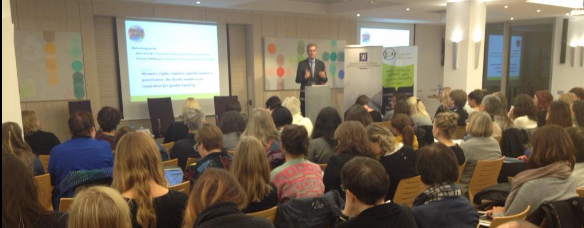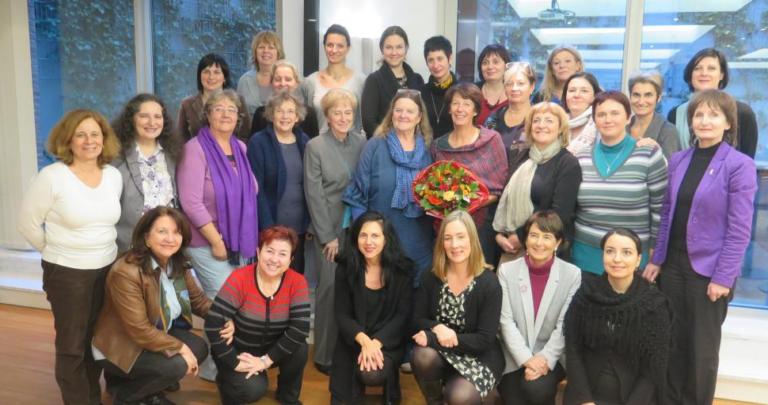(Vilnius, 18 October 2013) In order to mark the Seventh EU Anti-Trafficking Day, the Lithuanian Presidency and European Commission organised a conference entitled “Exploring the Links between the Internet and Trafficking in Human Beings: Cyberspace for Prevention, not Recruitment”in Vilnius on 18th October 2013.
On this occasion, experts from different governments, law enforcement, national rapporteurs or equivalent mechanisms, civil society organisations and academics, as well as the private sector and the media, met in order to discuss the role of the Internet in the phenomenon of trafficking in human beings.
Professor Donna M. Hugues held a keynote speech on the prevention of trafficking in human beings online. After presenting the various ways digital technologies are used for trafficking for labour and sexual exploitation, she made a point about the root causes for trafficking, highlighting the specificity of sexual exploitation: “In the EU, 80 percent of all victims of human trafficking are women and girls, and 96 percent of victims of sexual exploitation are women and girls. Sexual exploitation involves a violation of a different sort than forced labour. Sexual exploitation is more than gendered labour. It is a form of violence against women. Using a victim of trafficking is a serious and sustained violation of bodily integrity of a woman or girl’s body, over and over again, causing enormous emotional and physical trauma. The four percent of victims of sexual exploitation who are men and boys are exploited and harmed in the same way.”
Donna M. Hugues particularly pointed out to the role of sex buyers, and the tolerance of many countries for gender inequality as a root cause for sexual exploitation and trafficking : “The sex buyers are not ignorant of their contribution to human trafficking. Recent studies in countries of the EU have found that significant numbers of sex buyers are aware that the woman or girl may be underage or a victim of trafficking. The same studies also found that sex buyers purposefully travel to countries where prostitution is legal”.
“Instinctively, we know why the sex buyers of trafficking victims aren’t being held accountable: gender inequality. Because of the continuing gender inequality, men have the privilege to buy sex and victims are surrendered to criminals to meet that demand. The gender of the victim and the sex buyer are the reason that people tolerate this crime and why governments do not pass laws against it.”
The EWL strongly welcomes her analysis, which reflects the reality of prostitution, in a context of increasing globalised exploitation of all vulnerabilities, in particular of gender inequality.
Please click here to download her full speech.
More information on the conference on the European Commission’s website dedicated to the fight against trafficking in human beings.





